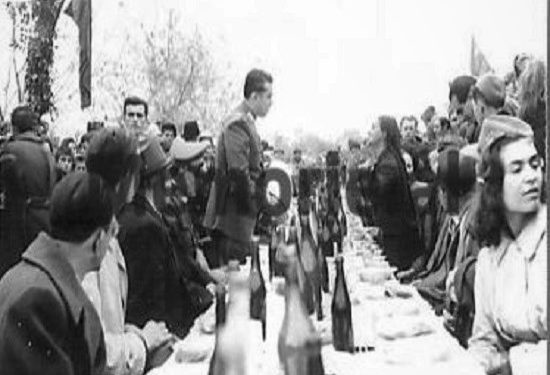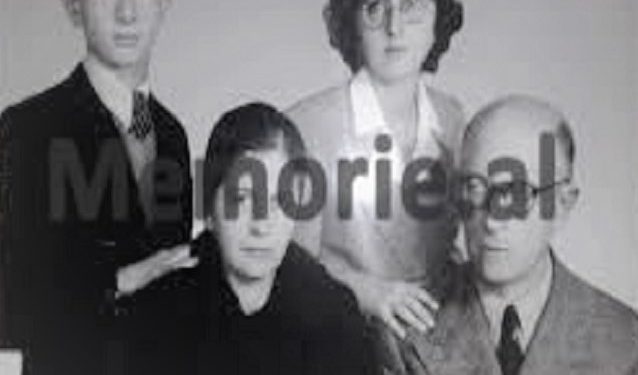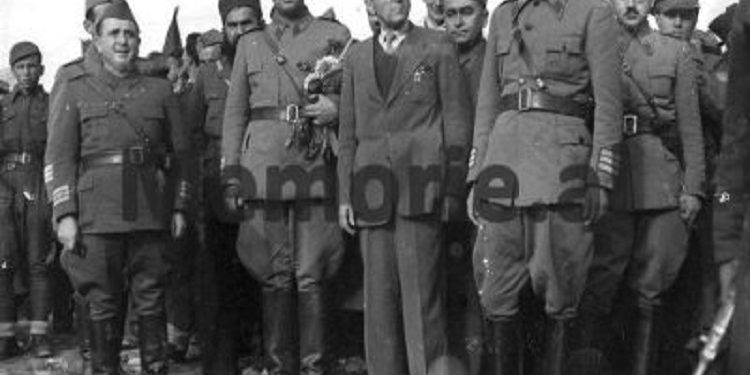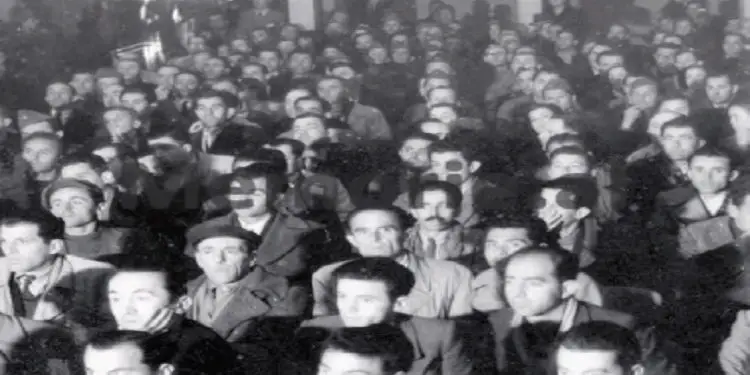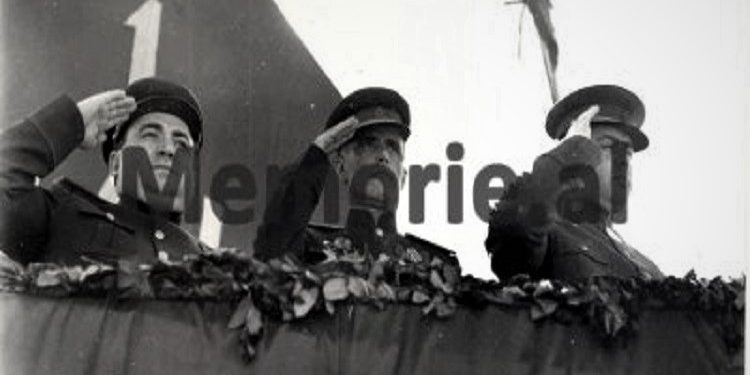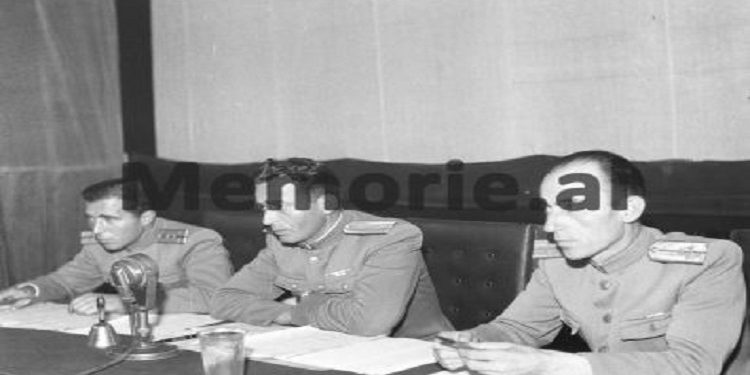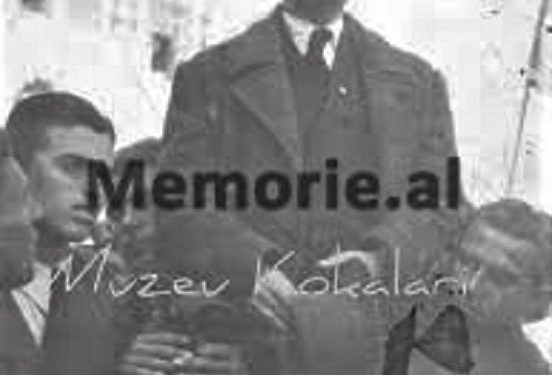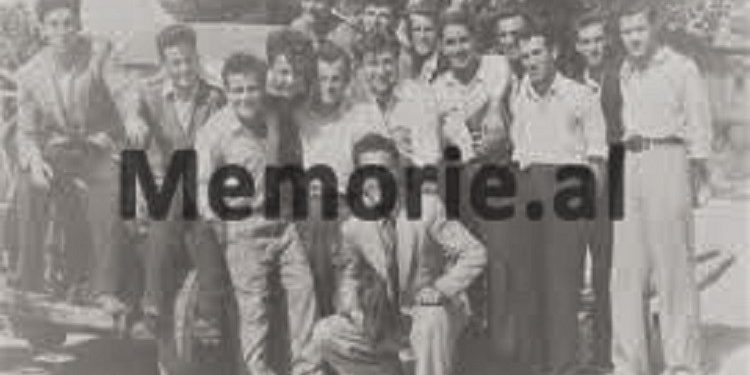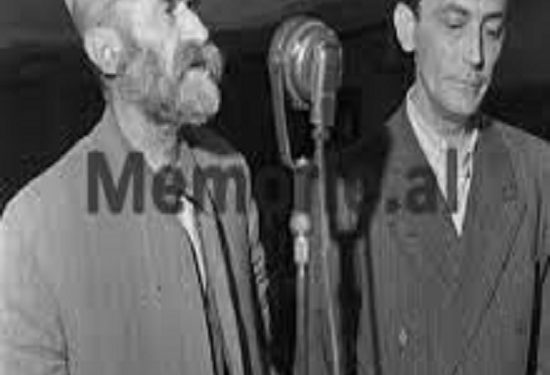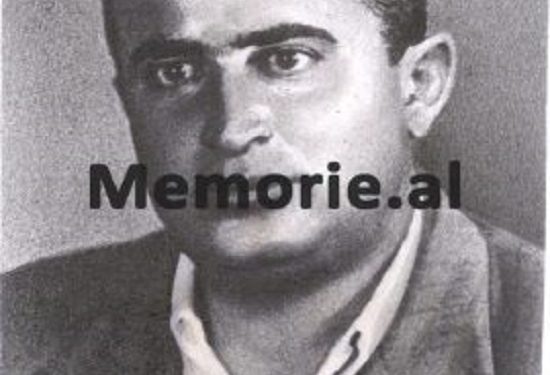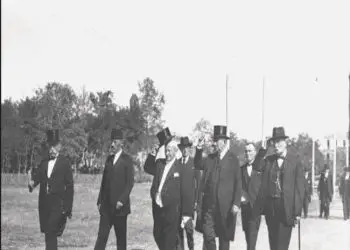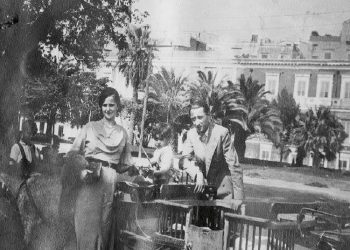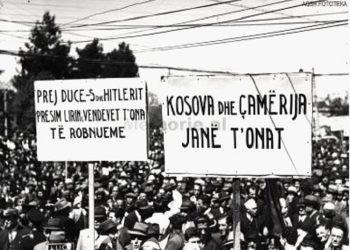Dashnor Kaloçi
Second part
Memorie.al/ publishes some archival documents extracted from the Archive of the Ministry of Internal Affairs which belong to the investigative and judicial file of the so-called “Group of Deputies”, which included 24 defendants and among them names and well-known personalities of during the Anti-Fascist National Liberation War and then deputies of the Albanian Parliament or in the Presidency of the Democratic Front of Albania headed by Colonel-General, Enver Hoxha, as Shefqet Beja, Dr. Enver Sazani, Sheh Ibrahim Karbunara, etc., who were brought before a military court headed by Major Niko Çeta and prosecutor Josif Pashko.
What were the accusations formulated by the trial panel against the 24 defendants: Shefqet Beja, Enver Sazani, Sheh Ibrahimi (Karbunara), Selaudin Toto, Irfan Majuni, Tefik Deliallisi, Hysen Shehu, Salim Kokalari, Sulo Konjari, Ramazan Tabaku, Gjovalin Vlashi , Rustem Sharra, Xhevat Xhafa, Rram Marku, Beqir Çela, Riza Alizoti, Sulo Klosi, Saggioti Paolo, Foto Bala, Abdyl Kokoshi, Shefki Minarolli, Pertef Karagjozi, Mehmet Prishtina and Agathokli Xhitoni?
What did the defendants of the “Parliamentary Group” testify during the investigative and judicial process, regarding: their organization, the branches they had in different districts of the country, the people who headed them, the connections with the anti-communist resistance groups that were on the run, or nationalist exponents of Balli and Legality who were in the Italian camps, the support they had from the Anglo-Americans and their missions operating in Albania, the connections with senior senior military of the Ministry of National Defense and that of Internal Affairs, and to people with high functions, near Enver Hoxha, etc.
The documents we are publishing in this article belong to the judicial and investigative file of the so-called “Group of Deputies” who were arrested and taken as defendants by the communist regime of Enver Hoxha, being placed in the dock of the accused in early September. 1947. In that trial which took place in the Cinema “17 Nëntori” of the capital from 4 to 27 September, when the claim was given, 24 people were tried as defendants, most of whom were well-known personalities. of the Antifascist National Liberation War.
Most of them were well-known intellectuals who had graduated from Western universities and some of them, such as Shefqet Beja, Enver Sazani and Sheh Ibrahim Karbunara, were members of the Albanian Parliament, nominated as candidates of the Democratic Front led from the Communist Party led by Enver Hoxha.
Apart from these three very well-known nationalists and very popular all over the country, who were the leaders of that group of defendants, known as the “Group of Deputies”, a large part of them were anti-Zogists and had supported or had taken an active part in the Anti-Fascist National Liberation War. Also, in that group were other intellectuals and various merchants, who had not joined any of the three political forces (Balli, Legality and the Communist Party) during the war, but who had frozen and embraced liberal ideas. -democrats of Western countries where they had studied, having strong anti-communist tendencies.
The trial of the “Group of Deputies” which began with a great pomoz by the propaganda of the communist regime, making available its entire arsenal of radio, newspapers and posters pasted on the walls, in terms of size and importance of his, was the second largest process developed up to that time since the end of the War. The first trial took place in March 1945, known as the “Special Trial against War Criminals,” and at the dock of that trial, 64 people appeared, most of them holding senior positions. in all Albanian governments from that of Ismail Qemali, to those under German occupation, such as deputies, prime ministers, ministers, prefects, mayors, ambassadors, senior military, etc.
Unlike the Special Court of March 1945, where all those persons whom the communist regime of Enver Hoxha had declared as “enemies and war criminals” were tried as defendants, the trial of the Group of Deputies, which began on September 4, in 1947, there was an even greater political and social burden, and of extraordinary interest, as some of the personalities who had joined the ranks of the Democratic Front, led by the newly ruling Communist Party, were tried there.
From various testimonies obtained from the family members of the “Group of Deputies”, as well as from the former military of the Ministry of Interior of that time, almost all the defendants of that group, during the investigation process were subjected to torture by the most inhuman in order to accept the accusations leveled against them by the investigators. It is clearly seen from the court file of that process, where some of the defendants during their trial denied the evidence they gave during the investigation, saying: “We were not able and we signed them.”
In addition to those testimonies denied in that trial, there is much other evidence by the defendants in that trial, which speaks of their anti-communist activity and activity, starting from the period of the War until the time they were arrested. , where Sheqet Beja, Enver Sazani, Ibrahim Karbunara, Hysen Shehu, Tefik Deliallisi, Sulo Kloso, Salim Kokalari, Beqir Çela, etc., have accepted all their activity aimed at overthrowing the Communist Government of Enver Hoxha. Also, in that court file it is seen that the defendants have admitted their connections and cooperation with the Anglo-American missions led by Harry Fultz and General Hodgson, as well as the connections with the main nationalist exponents of Balli and Legality, who were in exile or in fled through the mountains.
In addition to the many testimonies made by the defendants of that trial, (always referring to the file in question), which show their connections and anti-communist activity to overthrow the communist regime, one of the most interesting testimonies in that trial is that made by Tefik Deliallisi, where he tells about the conversation made at the house of Ymer Keçi in Tirana, where Ymeri charged Hamdi Kacolles, (the man who served next to Myslym Peza) with the assassination of Colonel-General, Enver Hoxha and Koci Xoxa, during the visit that they would do in Peza.
Although Memorie.al has the entire court file of this group, which consists of 173 typed pages and has been extracted from the Archive of the Ministry of Internal Affairs, we decided to publish only some of its main parts, giving those in the original version, as they appear in the relevant file.
Minutes of the trial of the “Group of Deputies”
Judging Court
Chairman: Major Niko Çeta
Member: Captain I, Nexhat Hyseni
Captain II, Mustafa Iljazi
Chief Secretary: Aspirant Thoma Rino
Prosecutor: Deputy General Prosecutor, Josif Pashko
Defendants
- Shefqet Beja
- Enver Sazani
- Sheh Ibrahimi (Karbunara)
- Selaudin Toto
- Irfan Majuni
- Tefik Deliallisi
- Hysen Shehu
- Salim Kokalari
- Sulo Konjari
- Ramazan Tabaku
- Gjovalin Vlashi
- Rustem Sharra
- Xhevat Xhafa
- Rram Marku
- Beqir Çela
- Riza Alizoti
- Sulo Klosi
- Saggioti Paolo
- Photo Bala
- Abdyl Kokoshi
- Shefki Minarolli
- Pertef Karagjozi
- Mehmet Prishtina
- Agathokli Xhitoni
Followed by the last number
Indictment
Testimony of Tefik Deliallis
Before the Shkodra uprising took place, it was decided in the Committee that the fugitives should return and unite and carry out actions among themselves. So, under our guidance, the gangs were ordered to carry out actions and carry out assassinations. We gave these instructions to the fugitives according to the instructions we received from the Anglo-Americans. After the meeting, I went to Durrës where I reported to the comrades the opinions of the Committee and together with Ramazan Tabaku, we were assigned to meet with the fugitives from Kruja and Shijak.
So Ramazan Tabaku, took 5,000 francs and went to Kruja where he met Ibrahim Kupi, while I took 20,000 francs and went to Shijak, where I met the fugitives and gave them the money. In April 1946, I talked to Hamdi Kacolla, and Ymer Keçi, at Ymer’s house; Ymeri told Hamdi Kacolla to leave General Myslym Peza, where he was on duty, and go to Peza; Ymeri’s intention was to send Hamdina to Peza for work and to assassinate General Colonel Enver Hoxha and Lieutenant General Koçi Xoxe, in collaboration with the people who would fall from Dibra Faik Shehu.
The Anglo-Americans had promised us that if Shkodra was taken by the insurgents, they would land, and the landing was not done because the uprising failed, as it did not take place on the appointed day. And when Salim Kokolari came from Tirana, I received 15,000 francs, I also received money from Ramazan Tabaku, which we gave to the fugitives and we told them that these are from the Durrës Committee. I know Mustafa Varoshi as an opponent of the Government and we held a meeting in his house, where we also told him about the Committee and he conducted propaganda in Kavaja and Shijak against the government.
Today, on the appointed day and time, the Council was formed as before, assisted by the Aspirant Chief Secretary Thoma Rino, and with the present presence of the Prosecutor Josif Pashko. Accompanied regularly the defendants were brought from prison and being free were placed in the special place, thus the trial began regularly and worldwide. The defendant Irfan Manjuni was interrogated, he was appointed as defense counsel Mr. Fuat Fico, whom he accepted. The Prosecutor’s indictment was sung to you and you accepted it.
Testimony of Irfan Majuni
After being asked, he stated: In July or August 1945, while serving in the Ministry of Finance, I went to the office of Kostandin Boshnjak, whom I found talking to Kol Kuqali. I asked them to forgive me for having a job, but they told me that we have nothing to hide, since I had talked to Kol Kuqali some time ago about the measures taken by the government. There we opened the issue of nationalization of vehicles and did not find it appropriate, we also spoke against other reforms made by the Government.
Kola said that these reforms should be stopped, so we should form an organization and when I told him who would form it, he told me that the organization was formed by Shefqet Beja, Selaudin Toto, Riza Dani, Enver Sazani, Sheh Karabunara, Suat Asllani and Gjergj Kokoshi. This organization was outside the Front, i.e. against the Government and to oppose the reforms. From April 1945, I talked about the formation of a socialist party with Salim Kokalar, Shefqet Beja, and Enver Sazani, they said that the Committee was formed and with my entry, that of Faik Shehu, and Riza Dani, this committee was completed, also I was told that the committee had held two or three meetings.
I attended the committee meeting from the beginning of September 1945. My organization aimed to overthrow the government by force and with the help of the Anglo-Americans. The committee has held many meetings. The first meeting where I attended, we held at the house of Ymer Keçi, and was attended by the whole group of deputies, such as: Kol Kuqali, Shefqet Beja, Sheh Ibrahim Karbunara, Kostandin Boshnjaku, Riza Dani, Selaudin Toto, Faik Shehu, Enver Sazani, me, Gjergj Kokoshi, Suat Asllani, Sami Qeribashi, Musine Kokalari, Hysen Karbunara, Ymer Keçi and Syrja Selfua.
This meeting took place before the elections and was opened by Shefqet Beja, who spoke against the government reforms, said that the current government is leading the country towards communism and since today we are on the threshold of an important event, we must organize against the government. After Shefqet Beja, we talked in turn: Riza Dani, Gjergji Kokoshi, Kol Kuqali, Kostë Boshnjaku and others. Gjergj Kokoshi said that: we in the elections should come out as an open opposition against the Front, well we did not accept this proposal and decided that our candidates who will be in the Front of the Front, to support the candidates of the Front, t ‘fight them and propagandize for abstention.
Our support was the merchants, beys and aghallars, later we also connected with the fugitives. In this meeting I learned that the committee of our organization was set up in Durrës and later was set up in other centers. After the elections, at the beginning of January 1945, we had another meeting, in this meeting the whole initiating committee participated, here spoke Riza Dani, who said that the results of the elections did not have any positive result for us, after our elements that started are very few; he told us that we in parliament should oppose as individuals, but not as a group.
After Riza, Kol Kuqali spoke, who said that the Anglo-Americans had told him that they would not recognize the elections and would demand their re-run. Then we were told that in case the elections are repeated, we will come out as opposition against the Government. The committee-maintained ties with the Anglo-Americans through Kol Kuqali and Selaudin Toto. Here we decided to develop propaganda to expand our ranks. The decisions we took were decided to be notified to the regions and for this Shefqet Beja went to Durrës, Riza Dani to Shkodra, Sheh Karbunara to Berat and Kol Kuqali to Korça.
I undertook to expand my ranks with the company I had in Tirana. The purpose of going through the circles was to inform them that he was stationed at the headquarters to come in contact and connect with the fugitives was decided at another meeting later. Kol Kuqali, received from the Anglo-Americans, 250 Pounds, of which 100 were taken by Riza Dani, 75 by Faik Shehu and the others were shared by Sheh Karbunara with Kol Kuqali. This money they sent to war criminal fugitives.
In another meeting we had, Shefqet Beja informed me that Tefik Deliallisi and Selim Kokalari had come in contact with the fugitives from Durrës, Riza Dani, from Shkodra, Sheh Karbunara with Hamit Matjani and Kol Kuqali, with a man named Alarup. After the fugitives needed and demanded money and weapons, we agreed with the Anglo-American missions, who gave us money and informed us about weapons and ammunition that they would land in a place off the coast of Albania. In this way they also informed us the fugitives.
My friends told me that a foreigner (English) was also present at the meeting, but I myself was not present at this meeting. They had talked to the English about the help they would give us. The expansion of the organization, the addition of squads and the connections and contacts with the fugitives we made after we intended, with the help of the Anglo-Americans to overthrow the government. As an adaptive place for movement against the government, the Anglo-Americans had told us that it was Shkodra, as they could even land there. Thus, to us, d.m.th. The Central Committee decided that the move should take place in Shkodra on dt. October 15, 1946. Simultaneously instructions were given to all counties to set the fugitives in motion.
The Shkodra movement was premature and failed as government forces were numerous and strong. The Anglo-Americans were informed about the failure of the Shkodra Movement through Kol Kuqali and Selaudin Toto, but they informed us that we should not lose hope and be encouraged, but we should continue to work because they would help us. and would put pressure on the government.
Kol Kuqali and Selman Ndreu informed us about the escape of Cen Elez, in a meeting where everyone was; we liked this because it was in our interest. With the failure of the Shkodra Movement, we decided to limit the meetings and make individual contacts while continuing the work, but in this way the circles were instructed to work carefully because we have hopes to reach the goal, as they help us Anglo-Americans. Surja Selfua, who was part of the Balli organization, has participated in our committee two or three times.
He informed us that their organization, through Abdyl Kokoshi and with the mediation of the Anglo-Americans, was connected with the fugitives from Italy such as Mithat Frashëri, Ali Këlcyra and others. I agitated with my friends, such as Skënder Cilka, Avni Skrapar, and Myzafer Kallanxhina, to whom I told the existence and goals of our organization, they approved that I told them because they were against the Government. I do not know if the committee decided to kill the fugitives, but it may have been decided and I did not attend.
Testimony of Salim Kokalari
Defendant Salim Kokalari. The committee decided to assassinate the people in power, including Irfan Manjuni. Our main support for the overthrow of the Government was the Anglo-Americans, who not only helped us, but also pushed us to work as much as possible by promising us cash, weapons and landings. We also supported the organization with agallar trade elements and beys. It was said in the committee that there were groups of saboteurs in Kuçova and elsewhere.
The reforms and nationalizations made by the Government did not look good to us, as they were against them. These were in the interest of the people but we, after being against the government, were also against them. I know we committed a great betrayal, but after we were against the government, which we called communist, we acted. I betrayed the oath and the trust that the people gave me to elect me as a deputy through my activity.
Defendant’s defense attorney was asked and had nothing to say. You sang the minutes of the investigation and accepted them.
The defendant Rustem Sharra is interrogated, he was appointed as defense counsel Mr. Ilia Kote, whom he accepted.
Testimony of Rustem Shara
The Prosecutor’s indictment was sung to you and you accepted it.
After being asked he stated: During the occupation I was a leather merchant. I have not been a member of any organization. I started my activity against the Government in June 1945. I often came to Tirana and after I had a friend with Shefqet Beja, I stayed in his house. One-night Shefqeti told me: I will be in charge of a job, to connect with Ram Abili and give him the money that I will give him. I accepted after I had a friend, so when I returned to Kavaja I agreed with a villager and asked to meet with Ram Abili.
The villager connected me with him and I went and met Rama, in a forest of Kavaja, to whom I told 100 napoleons, I told him that this money came from Tirana and that whenever he needed money, he would inform me about it. I sent them, so I told her to stay comfortable. Rama was in the forest with his son. I stayed with Rama for an hour and came back, then the liaison villager would come regularly and send him to Rama from time to time from 30-40 napoleons, but I do not know if the cantunder would hand him over or keep them to himself.
And when I came to Tirana, I told Shefqet Beja that I had met Rama and had given him money. On this occasion I asked Shefqet, why did he send money to Ram Abili? Shefqeti told me that we will be needed someday. I sent 600 napoleons to Rama and Shefqeti gave me 400. I did not ask for the other 200 napoleons, as I owe them over 2000 napoleons.
Shefqeti told me that the money belongs to the organization, later I became a member of the organization. I do not know that Ram Abili, has committed any murder. I sent help to Rama from what they gave me, but I did not give anything else. I have fallen victim to a friend, as I would not become either a Minister or an MP. When Shefqet talked to me to connect with Ram Abili, we all stayed one night. I joined the Kavaja committee in July 1945. Shefqeti had told me on one occasion, why don’t you make a nationalist committee in Kavaja and when I returned to Kavaja, I told Rakip Haxhi Alushi and we formed committees where I I was appointed treasurer.
But when I met with Xhaf Xhafa, I told him about the formation of the committee and that we had appointed him, and he accepted. Xhaf Xhafa met me once and told me that someone had come from Durrës and they had told us that you had not done anything, so Xhafa said, we should gather, so we gathered and elected as Chairman, Xhaf Xhafa, me as treasurer and Rakip Haxhi Alushi, Pirro Mineu and Dervish Iba, member. In the committee it was decided to work in the people doing with ourselves and other elements, so we met continuously, three or four times.
I have talked to four or five people, my friends, to whom I have talked about the organization far and wide and not directly. I have not collected money in Kavaja before. The organization’s goal was to overthrow the government. I do not know if anyone from the Durrës committee came to Kavaja./Memorie.al
Continues tomorrow




